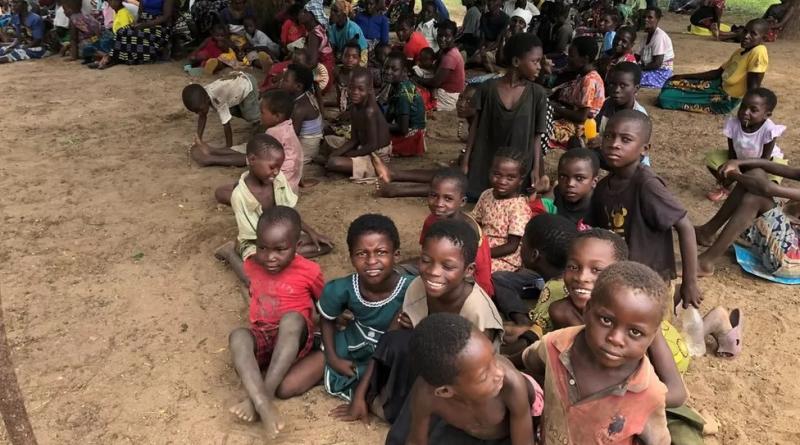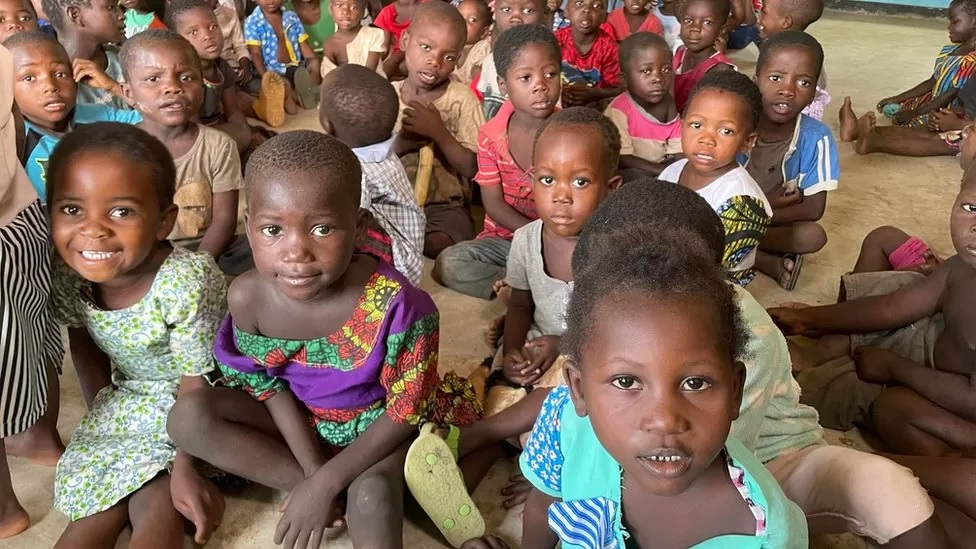How Scotland pays back for Malawi climate damage

Scotland is one of the first countries in the world to stump up cash for "loss and damage" caused by climate change in poorer countries.
When torrential rains came to the village of Mambundungu in Malawi, people's homes were washed away but that was not the worst of it.
The flood waters were infested with crocodiles. Children were carried away by them. It was terrifying.
Eventually, in 2015, the villagers couldn't take any more and moved their entire community to higher ground.
Then the new village began to flood too.
Malawi in southern Africa has been hard hit by the effects of climate change
But it is one of the poorest countries in the world and struggles to pay for the measures needed repair the damage.
That's where the Scottish government has stepped in, promoting the notion that rich nations should help pay for the damage from climate change in less developed countries.
At the COP26 climate change summit in Glasgow, it committed £2m for a "loss and damage" scheme - a world first. A further £5m is promised from April.
In November, at COP27 in Egypt, other world leaders finally agreed they would follow that example.
In Mambundungu, some of the money is being used to create flood defences in the new settlement uphill.
Village chief Isaac Mambundungu said he had no choice but to lead his people to safer ground.
He said: "People tried to build good houses but the water destroyed them.
"Even our children were carried away by the water. Even the crocodiles that are found in the river would come and attack the people.
"So when we saw this, we decided to move to higher grounds."
However, the move has not been popular with everyone.
Dorika Matiyasi has already returned to the original village because the farm land is more fertile.
She said the new settlement was affected by the same flooding as they had run away from.
"So what do we do?" she asks.
It is estimated about 80% of people in Malawi live and work off the land and the southern region is a patchwork of small plots mainly growing maize.
It is an existence of extreme poverty with many rural communities having no access to electricity and 3.8m people at risk of food insecurity, according to the World Food Programme.
The Scottish government's money is being spent in Malawi by organisations such as Sciaf, the Scottish Catholic International Aid Fund.
It identified six villages where the impacts from climate change have been significant.
Some of the £500,000 Sciaf has been allocated is being spent rebuilding the Mphatso preschool in Ngabu, which was originally constructed by the Roger Federer Foundation and ActionAid.
When the rains came from Tropical Storm Ana and Cyclone Gombe in early 2022, buildings were lost and teaching was halted as the school was turned into a makeshift camp for the thousands whose homes were lost.

Teacher Hannah Sozah says: "Those from the lower grounds running away from the water came to camp here. And they disturbed the learning process.
"We were unable to run our school because of the people that had come to camp here. Teaching was very difficult. That's the challenge we faced."
The school's kitchens were destroyed and the children have been having to eat their breakfast porridge on the ground using trees for shade.
But the 'loss and damage' cash is now being used to rebuild those parts of the school which were destroyed.
Ben Wilson, advocacy manager at Sciaf, says the money is different from the type of humanitarian aid which follows a major disaster.
He says: "Often that aid and those aid workers then leave because they go on to the next disaster - and there always is a next disaster.
"This money is coming in at a later stage when the communities have already received that immediate support. But it's giving them what they need to build back, to build that resilience, but also to get their lives back on track."
Some of the money is being used to protect a cemetery in the village of Mbenje where graves are frequently lifted and carried off by flood waters.
Village leaders had to ask neighbouring communities for space in their graveyards to bury the dead.
Saturated ground means it is a long time after the floods have gone before they are able to dig again.
Group village head Lucy Banda Mbenje says: "When the water comes, the tombstones are underwater. Even when the water has receded and we have a funeral, just by digging a little bit the water level is so high.
"That's why we go ask for other graveyards because we can't bury the dead in the water," she says.
"The climate has really changed. If we talk about past flooding our graveyard was not affected. There was no water in our graveyard."






